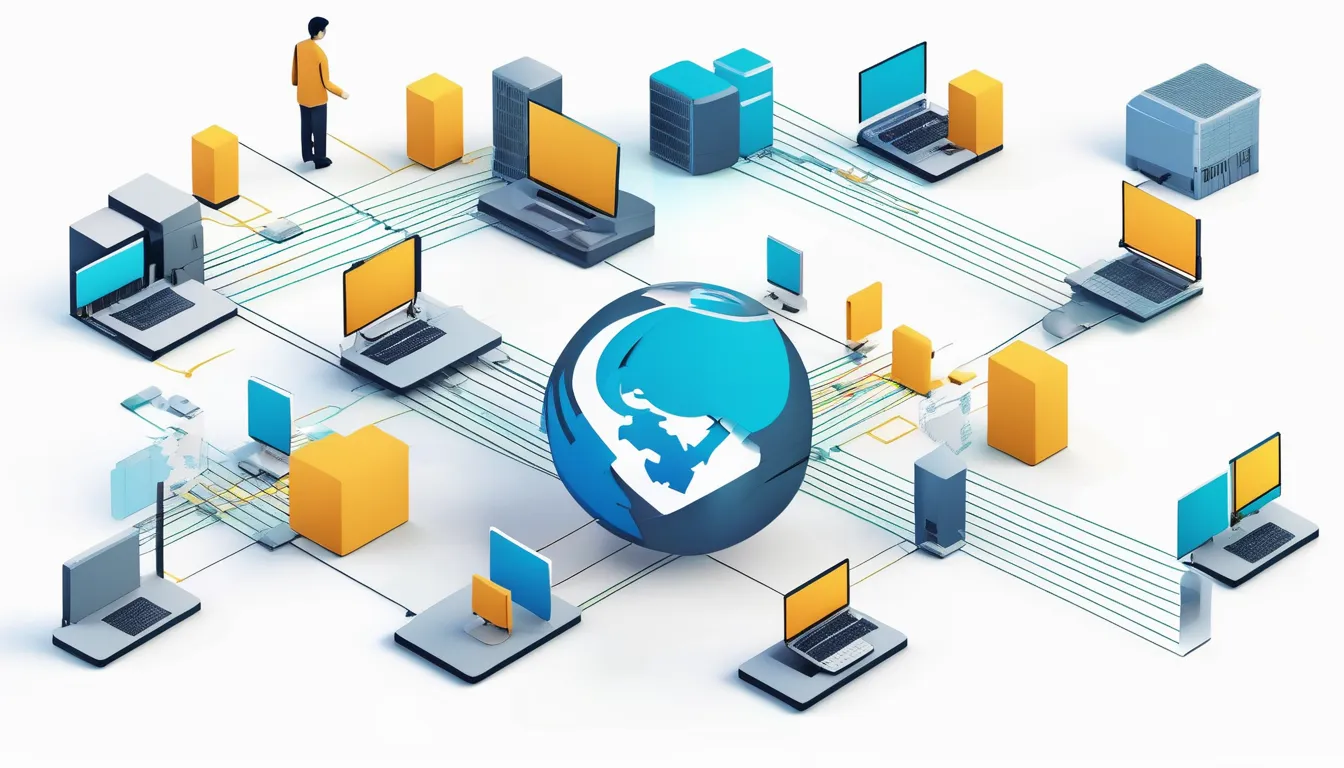
As you navigate the complexities of modern education, you’re likely to encounter the increasing importance of remote learning, especially during times of crisis. The COVID-19 pandemic has accelerated the adoption of remote learning technologies, and it’s clear that Information and Communication Technology (ICT) is at the forefront of this shift. But what makes ICT so crucial to the success of remote learning? From learning management systems to digital resources and teacher training, the role of ICT in education is multifaceted. As you consider the future of education, it’s essential to examine the ways in which ICT is shaping the landscape.
ICT Infrastructure in Education
You’re likely no stranger to the concept of ICT infrastructure in education, especially given the rapid shift to remote learning. You’ve probably seen or experienced firsthand the importance of having reliable and efficient information and communication technology (ICT) systems in place.
In the context of remote learning, a robust ICT infrastructure is crucial for ensuring seamless communication, access to learning resources, and the overall delivery of online education.
You’ll need to consider several key components when evaluating or establishing an ICT infrastructure for remote learning. These include high-speed internet connectivity, reliable servers, and robust cybersecurity measures to protect sensitive data.
Additionally, you’ll require a range of software applications and digital tools, such as video conferencing platforms, learning management systems, and collaboration software.
Role of Online Learning Platforms
The role of online learning platforms in remote learning is multifaceted and critical to the success of online education.
When you use online learning platforms, you’re able to access a wide range of educational content, interact with instructors and peers, and track your progress.
Online learning platforms provide you with a centralized hub for all your learning activities, making it easier to stay organized and focused.
Here are some key features of online learning platforms that make them effective:
- User-friendly interface: Online learning platforms provide an intuitive and easy-to-use interface that makes it easy to navigate and find the resources you need.
- Personalized learning: Many online learning platforms use AI and machine learning algorithms to provide personalized learning recommendations and adapt to your learning style.
- Real-time feedback: Online learning platforms often provide real-time feedback and assessment tools that help you track your progress and identify areas for improvement.
- Collaboration tools: Online learning platforms provide collaboration tools that enable you to interact with instructors and peers, share resources, and work on group projects.
Digital Resources for Remote Learning
With online learning platforms providing the infrastructure for successful remote learning, it’s time to explore the wealth of digital resources that can enhance your educational experience.
You can access a vast array of digital libraries, educational websites, and online repositories that offer a wide range of learning materials, including e-books, articles, videos, and podcasts.
These resources can be used to supplement your learning, provide additional support, and help you stay engaged.
You can also use digital tools to collaborate with your peers, share resources, and participate in online discussions.
Online forums and discussion boards can facilitate communication and feedback, while video conferencing tools can enable virtual meetings and presentations.
Additionally, you can use digital resources to access interactive simulations, virtual labs, and online experiments that can help you visualize complex concepts and develop practical skills.
Teacher Training and Support Systems
Transitioning to remote learning environments, educators must adapt and develop new skills to effectively engage and support students.
As an educator, you’ll need to learn how to navigate new digital tools, manage virtual classrooms, and communicate effectively with students remotely.
This requires significant training and support to ensure a smooth transition.
To provide effective remote learning experiences, you’ll need to develop the following skills:
- Technical skills: Familiarize yourself with digital tools, such as learning management systems, video conferencing software, and online collaboration platforms.
- Pedagogical skills: Learn how to design engaging online lessons, create interactive content, and assess student learning in a virtual environment.
- Communication skills: Develop strategies to communicate effectively with students, parents, and colleagues remotely, including regular check-ins and feedback.
- Troubleshooting skills: Learn how to troubleshoot common technical issues and have a plan in place for when things go wrong.
Future of Remote Education Systems
As you look to the future of remote education systems, you’ll likely see a continued integration of emerging technologies that enhance student experiences and educator capabilities. Artificial intelligence (AI), virtual reality (VR), and augmented reality (AR) will play a significant role in shaping the future of remote learning.
You’ll see AI-powered adaptive learning plat automatisering ms that adjust to individual students’ needs, providing personalized learning experiences. Virtual and augmented reality technologies will enable immersive learning experiences, making complex concepts more engaging and interactive.
You’ll also see the use of blockchain technology to secure student data and credentials, ensuring integrity and authenticity. Moreover, the Internet of Things (IoT) will facilitate seamless connectivity and real-time feedback, creating a more efficient and responsive learning environment.
As you navigate the future of remote education systems, you’ll need to stay adaptable and open to new technologies and innovations. By embracing these emerging technologies, you’ll be able to create more effective, efficient, and engaging remote learning experiences that meet the evolving needs of students and educators alike.
This will ultimately help to ensure that remote education systems remain a viable and sustainable solution for education in the years to come.
Conclusion
You’ll likely rely on remote learning during future crises, thanks to the advancement of ICT in education. With robust ICT infrastructure and reliable online learning platforms, you can access educational content anywhere. Digital resources and teacher support systems will continue to improve, making remote learning an essential tool. As technology evolves, you can expect remote education systems to become even more efficient and effective, shaping the future of education.

